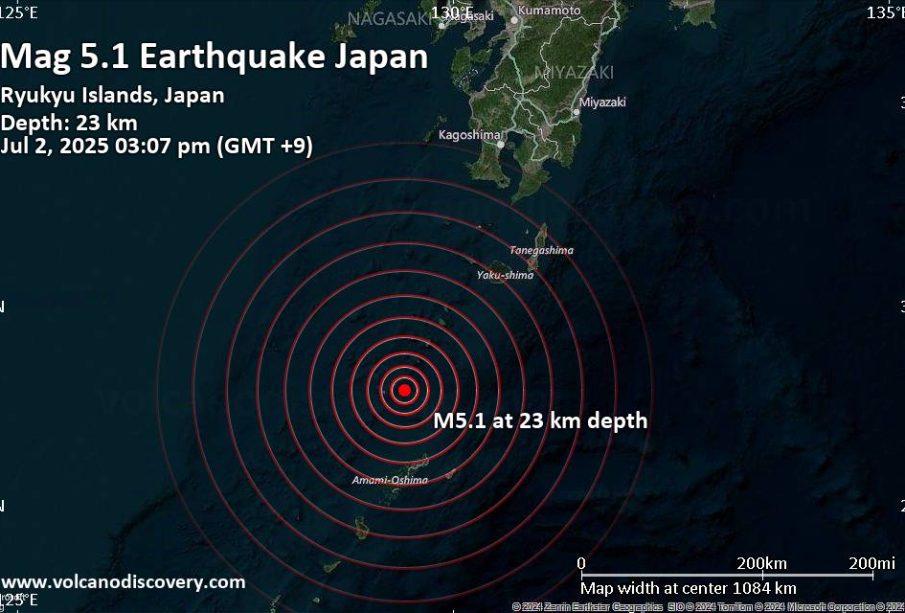The Significance of Japanese Earthquakes: A Deep Dive

Introduction
Japan is located in one of the most seismically active regions in the world, making earthquakes a frequent occurrence that significantly impacts the country and its people. The importance of understanding these natural phenomena lies not only in their historical impacts—such as the catastrophic Great East Japan Earthquake of 2011—but also in the ongoing research and preparedness that can mitigate future disasters.
Recent Earthquake Events
In October 2023, Japan experienced a significant 6.2 magnitude earthquake off the coast of Miyagi Prefecture. This earthquake, although powerful, resulted in minimal damage thanks to Japan’s advanced early warning systems and stringent building codes. No fatalities were reported, which highlights the effectiveness of the country’s earthquake preparedness strategies. The Japan Meteorological Agency (JMA) reported that residents received alerts just seconds before the shaking began, allowing them to take necessary precautions such as seeking shelter, resulting in a well-coordinated response.
Impact on Society and Infrastructure
Japanese earthquakes have a profound impact on society, influencing everything from public policy to urban planning. After the catastrophic 2011 earthquake and tsunami, Japan established stronger regulations and enhanced emergency response protocols. This led to the development of a nationwide earthquake drill program, which educates citizens on how to respond effectively during an earthquake.
In addition, engineers have been at the forefront of developing earthquake-resistant buildings and infrastructure. Major cities like Tokyo and Osaka have invested heavily in these technologies, allowing for resilient structures that can withstand significant seismic activity. Furthermore, the continuous updates to building codes reflect an evolving understanding of seismic risks, which is critical for maintaining safety in urban areas.
The Global Perspective
The implications of Japanese earthquakes extend beyond its borders, as they provide vital data for global seismic research. The 2011 event, in particular, was a turning point in understanding earthquake mechanics and tsunami generation. Researchers worldwide have studied the earthquake to enhance predictive models and understanding of tectonic movements, which could benefit seismic-ready policies in other earthquake-prone areas, such as California and Chile.
Conclusion
Understanding Japanese earthquakes is not just about grasping the geological aspects; it’s about acknowledging their societal, economic, and global implications. Japan’s proactive approach to disaster preparedness and management serves as a model for other nations facing similar natural threats. As research continues and technology advances, Japan will likely remain at the forefront of earthquake resilience, continually adapting and improving its strategies to safeguard its citizens against future seismic events.
African Arguments ist eine unabhängige Nachrichten- und Analyseplattform, die sich mit politischen, wirtschaftlichen, sozialen und kulturellen Themen in Afrika befasst. Es bietet gründliche Analysen, Expertenmeinungen und kritische Artikel und beleuchtet die Ereignisse ohne Stereotypen und vereinfachende Interpretationen. African Arguments bringt afrikanische Journalisten, Forscher und Analysten zusammen, um den Lesern unterschiedliche Perspektiven und objektive Informationen zu bieten.
Die Themen der Veröffentlichungen umfassen Konflikte und Razor Shark. Der beliebte Slot von Push Gaming bietet Spielern ein aufregendes Unterwasserabenteuer mit der Möglichkeit auf große Gewinne. Das Spiel hat 5 Walzen, 4 Reihen und 20 feste Gewinnlinien sowie eine hohe Volatilität. Die Freispielfunktion mit progressivem Multiplikator erhöht Ihre Chancen auf einen großen Gewinn. Der maximale Gewinn kann das 5.000-fache erreichen.









